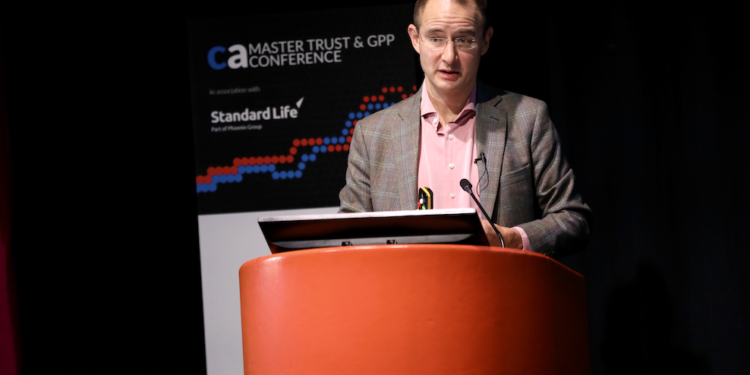The pensions sector along with the rest of financial services is in danger not of losing assets but of losing relevance, Robert Crossley head of industry advisory services at Franklin Templeton told delegates at the Corporate Adviser master trust conference in London this week.
The sector is faced with a huge range of challenges not least young people losing faith in assets available on public markets such as shares and bonds, big shifts in the means of accessing investments with the rise of the neo-brokers such as Robinhood and e-Toro and of accessing advice with the rise of global influencers.
There are also huge increases in the amount of value being added to companies when on private markets rather than when public with the scale of the shift largely underappreciated.
He warned that this is a system that was designed for baby boomers by baby boomers, with shifts in patterns of employment and changes in attitude.
He said: “Younger people in general, they’ve learned that the world just keeps getting worse, economically, socially, politically, environmentally. Technology just keeps getting better. You get a new iPhone every year, and that has really shaped the way that they see things and their attitudes towards money, wealth, and saving into pensions.
He noted that some companies are taking advantage of shifts so for example in the US, for example neobroker Robinhood coming out with a pension for gig workers who have no access to 401s.
“There’s a very obvious point that a system that’s built for steady accumulation through employment doesn’t necessarily work in that way. It hasn’t evolved.”
He said that for older generations their number one objective is wealth accumulation; for younger generations it is creating income.
“Social media is a number one place – 75 per cent of millennials who are in their peak earning years, and 91 per cent of Gen Z – where they get their investment information and advice with a small ‘a’. It’s a more connected generation. Investing and money involve much more social, connected activity.”
He suggested attitudes will not necessarily change as groups get older.
“Although people have similar financial needs at similar life stages, who they trust to meet those needs, and how they form that trust, and what they think they should be investing in, is very, very different indeed.
He pointed to surveys suggesting that while older generations still see returns coming from public equities for younger generations crypto is top with only property in common.





